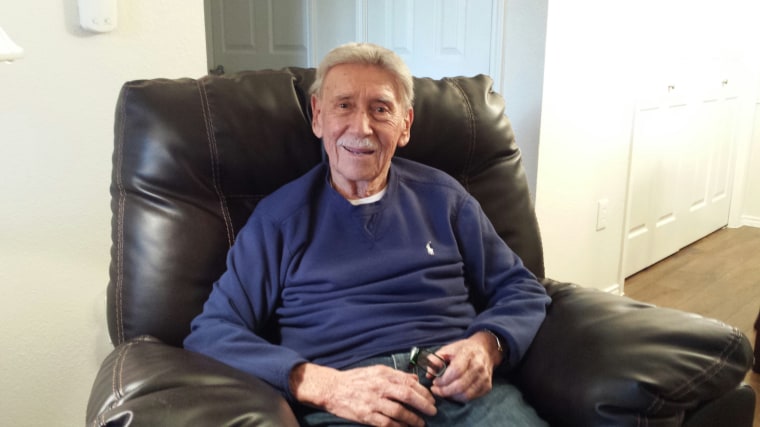In 1941, Samuel was a brash 16-year-old, who, by his own admission, “didn’t know anything.”
But he knew one thing for sure: He wanted to enlist in the U.S. Navy.
He was in a hurry to get to the front lines, so he lied about his age because he was desperate to serve his country and see the world.
World War II had been raging for two years, ever since Hitler had invaded Poland in 1939. An older brother was in the Air Force, and several of his friends and cousins had enlisted.
Samuel was eager to sign up, too.
He grew up in Dallas’ Little Mexico in a family of 12 siblings, at a time when prejudice against Mexican-Americans was high. Serving in combat was a badge of honor for many Latinos eager to prove their patriotism – to show that they were just as American as everyone else.
And they would put their lives on the line to prove it.
He wasn’t unlike the thousands of Latinos who served in WW II but don’t like to show their scars or talk about their experiences. By one Texas state demographer’s estimate, as many as 500,000 Mexican-Americans served in that war.
What would prompt so many to join the war effort?
Because military service was seen as “a road to economic uplift and inclusion in U.S. society,” Lorena Oropeza, a University of California-Davis history professor, said by email.
And “not just for Mexican-Americans, but for Latinos in general, and for many other groups that have experienced discrimination or exclusion,” she said. “For Latinos especially, who still fight outsider status (just listen to Donald Trump's recent ugly comments) a willingness to serve, particularly in wartime, is the ultimate proof of loyalty to the United States.”
It continues to this day.
In 2011, Latinos were enlisting at almost their same percentage of the population – 16.9 percent.
And they make up about 12.2 percent of veterans in the post-9/11 period, according to the Department of Veterans Affairs’ Center for Minority Veterans.
Latinos have been serving in every U.S. conflict since the American Revolution – a little-known fact now clouded by anti-immigrant political rhetoric – and enlisting in the U.S. armed services has always been a source of pride in many Latino families.
Back in 1943, after Samuel had been a couple of years in the Navy, he and his fellow sailors were gathered together to see who could hold his breath up to five minutes, if possible, and swim the farthest and not tire.
Samuel could.
He recalls being asked if he was ready to die for his country. He said no.
“But I’m ready to make sure the enemy dies for his country,” he joked.
But his work was no laughing matter.
He was chosen to be among an elite group of combat swimmers, an underwater demolition team in the South Pacific who would reconnoiter and remove hidden underwater obstacles and mines.
They would clear the beaches ahead of U.S. landing parties and locate rocks and reefs that could pose a danger to landing craft. They also would plant mines on enemy ships and locate and mark mines for minesweepers.
These underwater teams came to be known as “frogmen” – the forerunners of the Navy Seals.
The demolition teams were part of the Naval Combat Demolition Units, which were created in 1943. Several, including Samuel’s, were involved in preparing the beaches at Normandy.
Nowadays, at 90, he is one of about a dozen left of the original 100 or so frogmen, and perhaps the only Latino left. But he doesn’t like to talk much about what he lived through or what he saw.
He wasn’t at the Navy Seal Museum in Fort Pierce, FL., when it held its 30th annual Muster and Music Festival observance of Veterans Day last weekend.
He’s also been invited several times to go to Washington, D.C., and be a part of a national tribute on Veterans Day. He declines each time.
He won’t be there again Wednesday when the country marks the observance, starting at the Arlington National Cemetery.
“They want me to talk about my experiences in the war,” he says. “I don’t want to talk about that. I don’t want to remember that.
“I saw bodies everywhere. I saw my friends die. I don’t want to remember that.”
But we all will remember his service, and the service of all those who were willing to sacrifice their most precious gift – their lives.
For that, we give thanks beyond measure.
And, as Samuel’s daughter, I humbly add, “Thanks, Dad."
